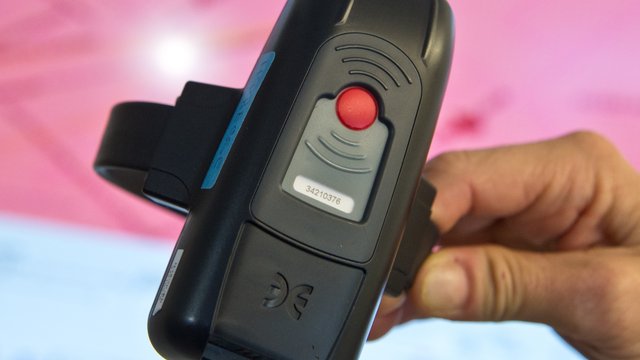On Air Now
Capital Breakfast with Fat Brestovci and Jilly Isabella 6am - 10am
4 October 2016, 11:16

An expansion of the use of electronic tags to help reduce reoffending has been proposed by the Scottish Government.
Pilot projects will see GPS tracking, alcohol monitoring technology and tagging as an alternative to remand used in Scotland for the first time.
The plans, announced on Tuesday by Justice Secretary Michael Matheson, will be accompanied by a wider package of support for offenders and follow the recommendations of an expert group.
Mr Matheson said: "The overwhelming message from the experts is that Scotland could significantly reduce reoffending by better use of electronic tagging and emerging monitoring technology.
"I welcome all of the recommendations the panel has made and am determined that we seize this opportunity to reduce crime even further and make our communities safer.''
The new projects will see GPS tracking used in addition to the current radio frequency technology employed to monitor people as part of their sentence.
Such an expansion of electronic tagging would be used in addition to community payback orders and other measures to tackle offending behaviour, ministers said.
A pilot project will look at how trans-dermal alcohol monitoring technology - "sobriety tags'' which keep tabs on ethanol levels in sweat - could be used.
The introduction of electronic monitoring to tackle the "disproportionately high'' rate of people on remand in prison will also be explored.
"Effective community sentences have driven Scotland's reoffending rate down to a 17-year low using smarter, more effective interventions,'' Mr Matheson added.
"The potential of combining community sentencing alternatives with tagging will allow us to hold people to greater account during their sentence and focus on rehabilitating them.''
Ministers say international research shows that short term sentences are not the most effective way of bringing down reoffending.
Working group member Professor Mike Nellis, Emeritus Professor of Criminal and Community Justice at the University of Strathclyde, said: "International evidence does suggest that various forms of electronic monitoring can add value to the best of what supervisors already do.
"The Justice Secretary's encouragement of a more integrated use of it is welcome. Within this helpful new framework, Scotland's criminal justice practitioners, including sentencers, need to work out how to use it wisely and well.''
On the use of electronic monitoring ahead of sentencing in cases, Stirling University criminologist Dr Hannah Graham said: "There is a disproportionately high rate of people on remand in prison in Scotland.
"The recommendation to introduce electronic monitoring as an alternative to remand opens up extra opportunities to address this issue by closely monitoring and supporting more people in the community pre-trial, without losing sight of the need to ensure public safety.''